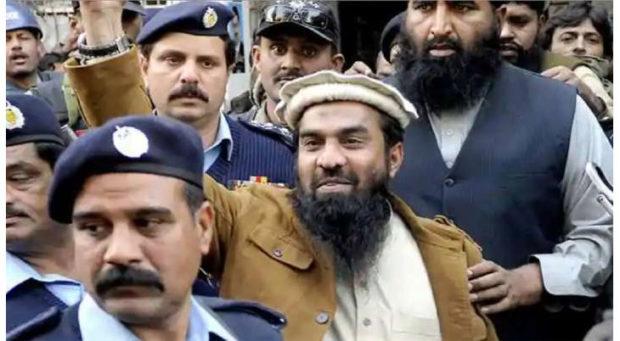A Pakistan court on Friday sentenced Zaki ur Rehman Lakhvi, a senior official of the militant group Lashkar-e-Taiba, to five years in jail for terrorism financing. Lakhvi and the group are accused by India and the United States of being behind the 2008 Mumbai attacks which took the lives of 166 people.
He was sentenced to five years concurrently on three separate counts of the offence, with a fine of 100,000 rupees on each count, an order from the court said.
Prior to FATF meet arrest warrant issued against Masood Azhar
The arrest warrant issued against Maulana Masood Azhar, the chief of the proscribed Jaish-e-Mohammed (JeM), is the first small step against the global terrorist who was claimed by Islamabad to have disappeared.
Also Read: Twelve years of 26/11
Pakistani diplomats last year told the global anti-terror financing watchdog Financial Action Task Force (FATF) that Pak government had not been able to take action against Masood Azhar because he was missing. Indian officials had then rebutted Pakistan, pointing that he was still holed up in his bomb-proof house behind the terror group’s Bahawalpur headquarters at Markaz-e-Usman-o-Ali, Railway Link Road, in Pakistan.
The FATF kept Islamabad in its ‘grey list’ that continued to make it difficult for Prime Minister Imran Khan’s government to get financial aid from international lending agencies such as the IMF. As he faces the most serious challenge from a combined opposition that has been mobilising public opinion against him, Pakistan watchers say that Imran Khan’s best chance to hold power is to get the economy back on rails to ensure that the opposition campaign does not find traction with the people. By most accounts, it is not easy.
Indian officials explain Pakistan’s recent steps – a warrant against Azhar who had been shielded for a decade at UN Security Council meetings by Islamabad as well as Beijing and the arrest of Lashkar-e-Taiba’s operations commander Zaki-ur-Rehman Lakhvi, to indicate Islamabad’s desperation to get off the ‘grey list’.
Pakistan watchers believe that Islamabad would use its leverage with the Quetta-based Taliban Shura in Afghanistan to conclude a deal with the incoming Joe Biden administration to seek the US support for Islamabad at the FATF meetings in exchange for its support for the peace talks. Pakistan’s deep state is also expected to use its capacity to calibrate violence in Afghanistan to convince the US administration.
Also Read: Link between Abraham Accords and Afghan Peace Process
Officials underline that neither of the two of Pakistan’s most prominent faces of terrorism faces charges for terrorism and killing scores of people but for terror financing. Zaki-ur-Rehman Lakhvi was the Lashkar commander who had plotted and supervised the 26/11 Mumbai terror attack.
“But the baby steps are also important for the message they hold,” an Indian counter-terror official said, a reference to the pressure on the Imran Khan government to get off the FATF’s grey list. At the last meeting, the FATF had repeated its warning to his government to take more steps or risk being blacklisted.
The official said that it was true that the arrest warrant against Azhar and Lakhvi’s arrest were reversible steps. Lakhvi did spend time behind bars after the 26/11 attacks, he lived in “relative luxury” and fathered a child while in prison on terror charges but was set free when the global pressure on Islamabad eased.





